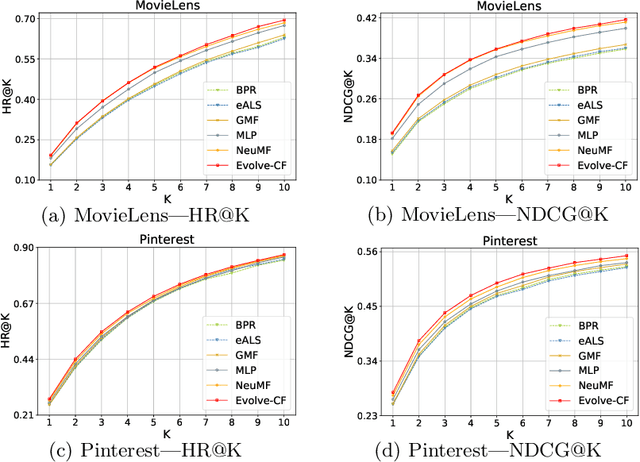Evolving Deep Neural Networks for Collaborative Filtering
Paper and Code
Nov 15, 2021



Collaborative Filtering (CF) is widely used in recommender systems to model user-item interactions. With the great success of Deep Neural Networks (DNNs) in various fields, advanced works recently have proposed several DNN-based models for CF, which have been proven effective. However, the neural networks are all designed manually. As a consequence, it requires the designers to develop expertise in both CF and DNNs, which limits the application of deep learning methods in CF and the accuracy of recommended results. In this paper, we introduce the genetic algorithm into the process of designing DNNs. By means of genetic operations like crossover, mutation, and environmental selection strategy, the architectures and the connection weights initialization of the DNNs can be designed automatically. We conduct extensive experiments on two benchmark datasets. The results demonstrate the proposed algorithm outperforms several manually designed state-of-the-art neural networks.
 Add to Chrome
Add to Chrome Add to Firefox
Add to Firefox Add to Edge
Add to Edge